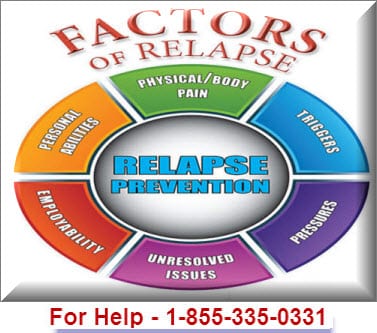Six weeks ago I relapsed from my addiction recovery and, subsequently, from my Bipolar Disorder recovery. The two are so intertwined that a distinction can barely be made by me or my mental health team. When I use substances I also quit taking my medications. When I quit taking my medications I am more likely to use substances to control growing symptoms.
The first question everyone asked was: “Why?” What led to picking up again? The hope is to identify the reasons and prevent future relapse. However, with all my self-analysis I couldn’t give them an answer except “I felt like I was missing out.” In retrospect, the harsh reality is “I saw others using drugs to escape and I desperately wanted to escape too.”
Today I can see reality and see that, despite the best medicines and mental health team, I have spent 3 decades using drugs of one kind or another to deal with life on life’s terms and sometimes—not always or even mostly—I miss the escapism. Drugs weren’t the only way I escaped: an active fantasy life and “letting” myself become hypomanic were my other forms of escape from the day to day challenges and pains of life.
So, I sit here today and wonder what could have been done: 1) I have to minimize or eliminate people in my life who use escapism to deal with life, 2) I have to accept the discomfort and pain when it comes and work through it and 3) I have to reach out to others (very difficult for me) when I feel weak or my thinking is compromised by life.
What I am doing now? Refocusing on the success I had for many months. A lapse/relapse doesn’t constitute starting over. I was very depressed at first because I believed that to be the case. It is not. Your successes are still yours, your coping tools are still there and your support system is still intact. If you lack tools or support, it is imperative that you get to treatment/therapy/self-help meetings and build your toolbox. Remember that others have so much wisdom to give and it is totally free at self-help meetings. Similarly, build yourself up with people who will support you. They can be found on your mental health team (if not, think about changing providers, but most MH Professionals will go above and beyond to help you), in self-help meetings, and amongst your friends and family (simply asking “Can I come to you with issues of recovery?” goes a long way).
I am also “sitting in” the discomfort of my shame and disappointment in myself. NOT beating myself up, but letting myself see the disappointment I have and burn it into my brain. Both my disappointment and that of my supporters is a powerful incentive to stay on track. It’s painful to see my boyfriend suddenly not trusting me again. There are long awkward silences and questions that I want to get defensive about, but realize they are the consequences of my relapse. I have to own these moments too.
I have a sponsor now. I attend more self-help meetings and really listen, knowing my best thinking got me where I am. Most of all, I have hope: hope that I CAN deal with life as it comes without picking up or stopping my psychiatric medications. Hope that I never have to use escapism to deal with trials again. I thank my supporters for this hope…My higher Power, Calvin, Anne, Marianne, Ken, Ms. Langley, Dr Smith and many more people who shall remain nameless but very much a part of my support network. If you are struggling, reach out. If you know someone who struggles, be their support person!


